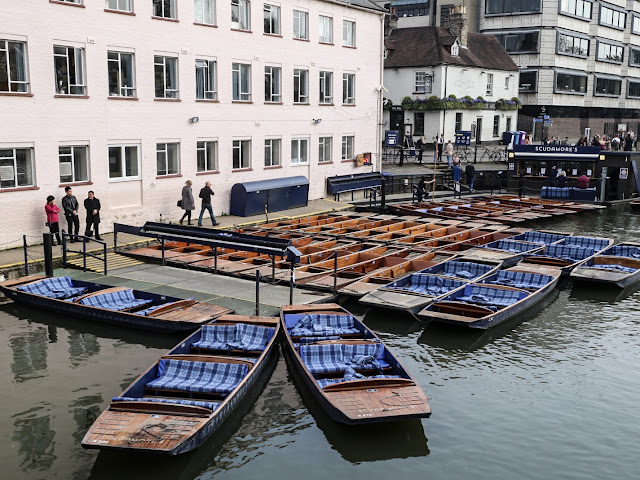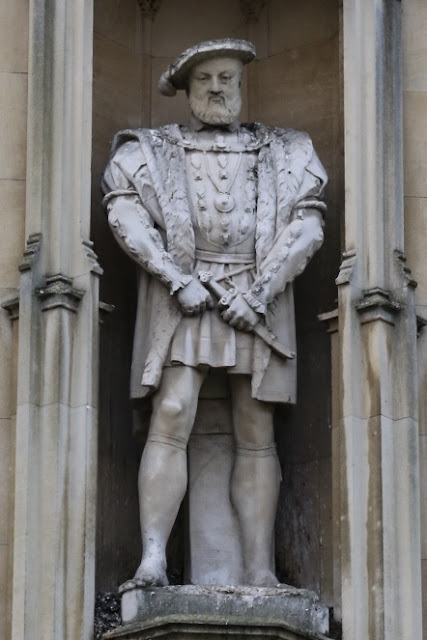It's quite strange how leaving Scotland to travel down across the border
to England is something I don’t really look forward to any more and the further
south the worse the anxiety gets. But our trip this time had a purpose. Attending
a surprise birthday party of a very old friend was the reasoning for this
rather long journey to a campsite in a wee village called Wicken located a
short distance north of Newmarket where the party was to take place. We
obviously took the opportunity to see some of the area but not having too much
time restricted this.

Meadow View Campsite was located at one end of the village. A small area
of the site was reserved for no more than five or six Motorhomes and/or
Caravans with the remaining acreage used for storing tourers with a small
selection reserved for caravans used by tradesman working in the area.
Certainly the facilities leave a lot to be desired so much so we had to use our
own shower unit, which to be fair is quite unusual. Although he seem a nice and
helpful man cleaning o the facilities did not seem high on the site owners
priorities and the disabled toilet/shower was used by the workman which did not
help.
 |
| Wicken Windmill. |
 |
| The Last Water Pump. |
The village did not impress us either. Typically oldie world English,
very picturesque with its thatched houses and village green but no shops and a
bus service that only ran on a Thursday morning, although we were told by Mr
Rash the site owner that the local Community Council were trying to get the
service improved.
 |
| The Blue Ball Inn. |
It is said that both Lord Byron and Virginia Wolf bathed naked in the
river that flows through Grantchester, but probably due to a cold wind no one
was bathing naked on the day we visited. Lunch at the Blue Ball Inn that was
rebuilt in 1893, followed by a leisurely work across the Grantchester Meadow
and then along the ‘Grantchester Grind’ a pathway that follows the River Cam
into Cambridge.
 |
| The University Town of Cambridge. |
The University town was, and probable always is, very busy with tourists
from all over the world, students and guided sightseeing tours. A stop at The
Cambridge Chop Shop located opposite Kings College for tea and then back for a
look around Grantchester that was the subject of a song by Pink Floyd featured
on the 1969 double album Ummagumma.
 |
| The Red Lion Inn Grantchester. |
 |
| The TV Programme Based on James Runcie Novel. |
Also the village was the setting for James Runcie’s detective novels,
which was adapted as a ITV drama titled Grantchester, some of which was filmed
on location there.
 |
| St Andrews and St Mary Church. |
 |
| The Kirkyard. |
The Grade 2 listed church of St Andrews and St Mary dates back to the
twelfth century with various sections built following that date.
Wicken Fen.
 |
| The Fen Reserve. |
Our last day was spent exploring Wicken Fen, very much a highlight of
our visit south. A large part is owned and managed by the National Trust and is
one of Britain’s oldest nature reserves. Most of the rather uninteresting area
surrounding the Wicken Fen has been drained and is know used as arable
farmland, whereas the reserve, one of only four surviving wild fens, includes
many original features of the area including fenland, farmland, march and reed
beds.
 |
| The Wooden Wind Pump. |
Built around 1912 the wooden wind pump is the last surviving pump in the
Fens originally used for draining the former peat diggings and restored and
moved to its present site in 1956 it is still in use pumping water from a
nearby ditch into Sledge Fen.
 |
| The Water Pump |
This windpump brings much needed calcium rich water to the Fen, restoring the water balance and therefore helping the fen plants to survive.
 |
Local Crafts like Hand Made Gates and Live Hedging.
|
 |
| The Kiln where Bricks were made from the Local Clay Pits. |
 |
Fen Cottage.
|
The cottage dates back to the 18th century when it was two separate dwellings until 1925. Four generations of the Butcher family lived in the property until 1972. Then in 1974 The National Trust purchased it and began restoration in 1988 using local materials and techniques used in it original construction.
 |
| The Fensmans Workshop. |
This recreation of a typical Fensmans workshop provides details of how Fenlanders lived and worked.
 |
| Konik Ponies. |
This is primitive rare breed of pony from Eastern Europe, introduced to the Fen in 2001, descended directly from the Tarpa, a wild forest horse hunted to extinction in Britain in Neolithic times.
 |
| Various Examples of creatures can be seen on the Nature Reserve. |















































No comments:
Post a Comment